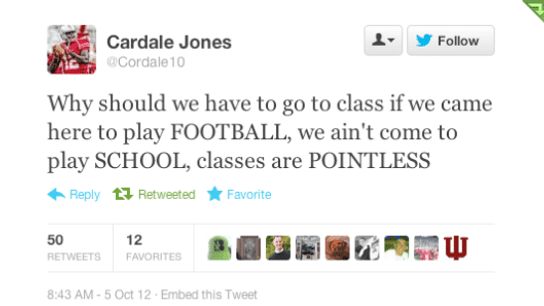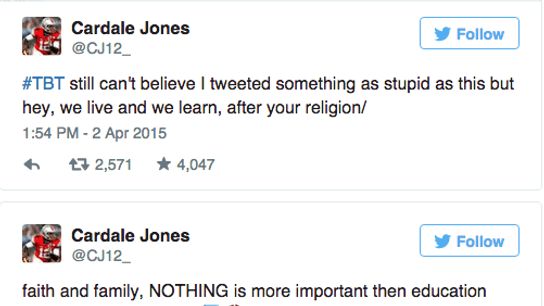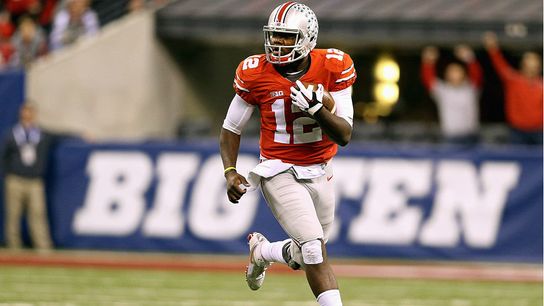The calendar has arrived at mid-August, bringing with it many of the rites of early fall and late summer: players reporting to camp and participating in the hijinks associated with it, the popping of plastic helmets and shoulder pads colliding once again, the smell of a grass field worn with activity and, for some players, shuttering their social media accounts until January.
It's a practice not nearly as prevalent as it was in the early part of the decade, but still it lingers. Back in 2012 we wrote that in our opinion banning players from using social media was the wrong choice (the school du jour that day was Old Dominion but plenty of others were banning twitter as well...note that just a few months ago ODU head coach Bobby Wilder changed his stance and now allows his players to use social media in-season). Florida State and Clemson still ban their players from in-season social media use, among others.
Coaches, who know their players far better than any of us do, presumably impose these bans to help their players focus on football and their education. There are only so many hours in the day and there is no need to waste one, two or three of those staring at your phone. For those coaches still banning players from using social media during the season (and, let's be honest, they're still lurking, just not posting), here's a different take on what you are really saying to your players:
1. Social media is not a tool, but a distraction. You likely learned this when you recruited him - probably in part through Twitter direct messages - but today's youth view social media as essential to the daily functions of life as eating, drinking and sleeping. Ignoring social media (or banning it during the season) tells players it's either dangerous or unimportant. Neither is true.
2. Teaching your players how to properly use social media isn't worth your time. Coaches promote themselves all the time as not just teachers of a game, but teachers of life. For some, though, that doesn't extend to social media. "A player may tweet something regretful and spark headlines for a few hours, and thus, it's best to just leave this corner of the world dark." A player's social media account, and, by extension, his smartphone, is the compass through which he navigates the world. Might as well teach him how to read it.
3. Any potential positive is outweighed by the consequences of a negative post. To this day, the standard for dumb college athlete tweets remains Cardale Jones' infamous "play school" tweet from 2012.

The tweet so derailed Jones's career that he would later lead Ohio State to successive wins over Wisconsin, Ohio State and Oregon en route to a national championship.
Every coach in America has a sign in their building or a line in their repertoire about how mistakes are nothing more than learning experiences. Jones learned from his and is now better for it.

Last month his Twitter account was hailed as the best in college football.
